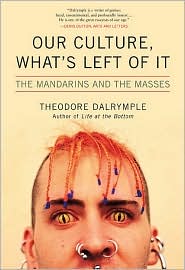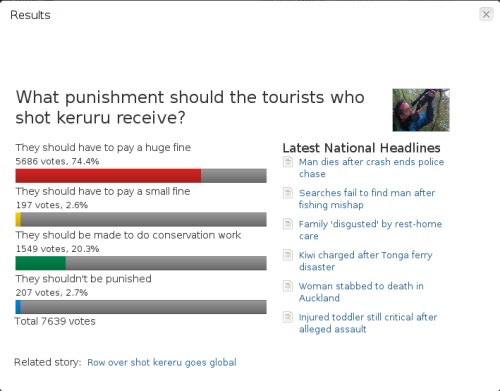From my perch in SE Asia I have observed with some bemusement what passes for immigration debate in the US, UK, Europe and NZ. I am bemused because the place that I live has a very non-PC approach to immigration and yet is held out as a beacon of ethno-cultural diversity, toleration and meritocratic entrepreneurship. Were it that it be so.
In most of the West the dominant discourse on immigration is phrased in terms of labour market necessity. Countries need skilled and/or unskilled labour as the case may be because their domestic reproduction rates cannot keep pace with economic growth. Since capitalism must grow to survive, it needs labour inputs to provide the human fuel for that growth. Depending on the human resource base of the country in question, skilled or unskilled labour is imported and allowed to settle in order to fill labour market demand and to increase inter-generational reproductive rates conducive to eventual labour market self-sufficiency. Or so we are told.
Yet there is a demographic aspect to this labour-market immigration strategy as well. Â In the contemporary US Hispanics fill many of the unskilled labour needs; in Germany Turks do the same; in France Algerians fulfill that function; in Greece Albanians perform the role; in Portugal Romanians, Angolans and Brazilians play that part. In NZ it has been traditionally Pacific Islanders who fill the ranks of unskilled labour, and receive preferential immigration treatment as a result. Skilled labour shortages are filled by Indians, Chinese and Europeans in the US, by Spaniards, Greeks, Italians and Eastern Europeans in “old (Northern) Europe,” and by Indians, Asians and expat Europeans and South Africans in NZ (the list is not meant to be exhaustive and recognises overlap in skill categories in some instances). There is, in other words, an ethnic component to inter-state labour market migration.
The unspoken question, and the elephant in the room in such approaches to labour market necessity requiring the import of foreign labour, involves the intertwined issues of race, culture, ethnicity and religion. Until recently, with the exception of conservative or right-wing cultural supremacists, it was simply unacceptable to wonder out loud whether certain races, cultures or creeds were more or less likely to assimilate and contribute to the dominant culture and society of their adoptive countries.  Race-baiting politicians in the US, Europe and NZ have regularly played that card for electoral purposes, but by and large the majority of “proper” people in Western democracies prefer to not to confront the thorny issue of racial and religious composition of immigrants under conditions of labour market necessity. Yet not talking about it does not make the issue of ethnicity in immigration go away. Put bluntly, elites may see immigration in purely labour market terms, but the masses may just as well see it in ethno-religious and cultural terms, with all the baggage that entails.
The SE Asian country I live in has no PC qualms when it comes to the issue of work force demographics. This country is ethnically Chinese dominant (they make up 65% of the population). The ethnic totem pole then descends through Indians (the faithful lieutenants to the Chinese), Europeans (read: white people who are the managerial class for both local and foreign enterprise, and who are derogatorily called ang mor  or ang moh (red haired, which goes to show that NZ is not the only country in which “gingas” are reviled), other Asians (Koreans and Japanese preferably), Malays, Indonesians, Tamils, Sri Lankans, Ceylonese, Filipinos, Burmese and other sub-continental ethnicities. Immigration and reproductive policy is explicitly crafted to favour ethnic Chinese over all others when it comes to immigration, residency and citizenship. Because the country is labour-starved on both ends of the skill spectrum and the local Chinese reproduce at unsustainable rates, mainland Chinese and Taiwanese are given preferential immigration treatment even though the local Chinese look down their noses at their mainland counterparts as uncouth and unwashed uneducated provincials (their disposition is more generous towards Taiwanese but the attitude of superiority of Singaporean Chinese towards other Asians is pervasive). The country makes no secret of its determination to keep the present racial balance so as to maintain ethnic Chinese dominance, and makes no secret of what it sees as the superior cultural values of the dominant ethnic group (familial piety, ambition and discipline being foremost amongst the supposedly “Confucian” traits). For the rest of us it is a take it or leave it proposition, with money being the great leveler when it comes to attracting both top end and low end talent.
The very good public housing system is based on forced racial integration schemes, with the percentage of units allocated in any given housing bloc reflecting the proportional mix of ethnicities in the country. Although promoting racial and religious “disharmony” is prohibited by law and vigorously enforced in the main, racial integration and harmony are construed on Chinese terms and in their favour. From where I sit, it looks a lot like, albeit in a more disguised and benign way, aspects of the Jim Crow Southern US, except that here everything is written in Orwellian terms so that racial “harmony” actually means Chinese dominance. So long as everyone understands their place, play by the rules as given, bow to the rule of the one party state and accept material gratification and commodity fetishism as their reward, the racial status quo is preserved and the business of making money (or in the official jargon, Â “pursuing prosperity”) can continue unimpeded.
Even so and despite the official line on racial harmony, racism is a constant latent fact of life here. Besides resistance to inter-marriage and barely disguised inter-racial contempt (particularly by the local Chinese towards Malays, Indonesians and Filipinos), things like housing blocs are divided in such a way that resident Malays can only sell to Malays and Indians to Indians, thereby depressing house prices and impeding upwards mobility for the majority of these subordinate groups. Non-citizens and non-permanent residents cannot own housing bloc units. Although there is much official palaver about being a meritocracy, the unspoken truth is that nepotism and patronage networks are equally if not more the key to economic success, and these unofficial channels are, given the demographics, Chinese-centric (although ethnic Chinese are not alone in the use of informal vehicles for economic advancement, nor is this phenomenon confined to this one state–NZ has its well-known system of old boy and new boy-girl networks that are anything but meritocratic). Here the bottom line is simple: accept the racial status quo as given and toleration of difference will be the order of the day. Challenge that status quo and run the risk of running afoul of the Internal Security Laws and their very broad definition of sedition. A pervasive system of domestic intelligence gathering, particularly but not exclusively focused on the resident Muslim community, ensures that challenges to the status quo are thwarted early and often.
Non-citizens and permanent residents do not receive anywhere close to the health, welfare and housing benefits accorded to citizens. To the contrary, they are actively discriminated against in allocation of public goods. This goes as much for the high end immigrants as for their low end counterparts, but it is only the former who have the personal income or corporate subsidies to cover costs in the private health, retirement and housing  markets (this is the case with most Kiwis, Australians and Americans living here). Low skill foreign workers, mostly coming from ethnics groups such as Tamils, Bangladeshis, Nepalese and Sri Lankans, do not have the financial resources to engage private care, so most often are deported with token compensation should they fall ill or otherwise unable to work (that includes pregnancy). Most low end foreign workers live in subsistence dormitories provided by employers who sign them to three year minimum wage contracts (some of these dormitories are converted shipping containers housing 30-50 individuals with a single toilet and shower).Â
In fact, foreigners in general fall into three categories, investors, employees and dependents, with the first two being the only basis for residency. Should a foreigner lose his or her job or withdraw or lose their investment capital in the country, their visas are withdrawn and they and their families summarily issued orders of deportation (usually with a 30-60 day expiration date; overstayers are regularly caned as part of their punishment). In some cases, such as those of Chinese construction companies, foreign investors bring their own employees with them and subject them to their own labour standards via exclusionary clauses in local labour legislation. Add to that the very lax labour laws governing dismissals and redundancies, and you have a structural bias, in the form of labour market regulations and working visa controls, in favour of ethnic Chinese socio-cultural dominance.
I note all of this with agnosticism. Readers can make whatever inferences they choose to. The larger point I am trying to make is that here is a small state that is considered to be a model of capitalist development in the late 20th and early 21st century that uses an explicitly race-based labour market-driven immigration model in pursuit of the cultural, social and political dominance of the majority ethnic group. The system works; in fact, it is hegemonic by any definition.  Given that success, is it worth broaching the uncomfortable subject of cultural dominance when it comes to immigration in a place like New Zealand? Or is that simply a bridge too far and labour market logics should be the sole rationale (other than refugee quotas) upon which immigration policy is formulated and implemented? But if it is indeed unacceptable for a liberal democracy like NZ to use race-based criteria when confronting labour-market driven immigration  and social policy, then why does the NZ political-economic elite use my current country of residence as a developmental model or example to be emulated?
*Because there has been some misreading of the post in the comments thread, I have updated it in order to clarify some of the argument.






